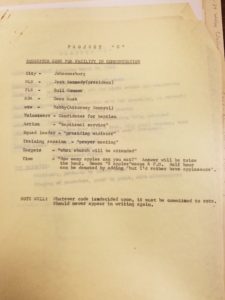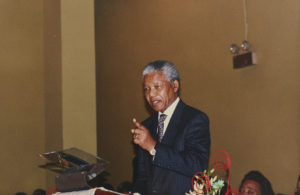(Note: This post was authored by Taylor McNeilly, Processing & Reference Archivist.) This week’s #WyattWalkerWednesday may have a slightly misleading title. I’ll be talking about Dr. Walker, his work on Project “C”, and materials in the Dr. and Mrs. Wyatt Tee Walker Collection, but it’s important to note that Dr. Walker’s role in Project “C” will not be covered in its entirety. Nonetheless, I’m excited to share some newly discovered materials in the collection that touch on these points!
A recently processed box of materials included a lot of SCLC material that I wasn’t expecting. The importance of much of this material was immediately apparent, as it touched on some of the biggest campaigns SCLC had during Dr. Walker’s tenure as Executive Director. One such campaign was Project “C”, also known as Project Confrontation. This was the code name for the work SCLC did in Birmingham, AL in 1963 and included boycotts, marches, and more. While the collection hasn’t yet shed light on just how integral Dr. Walker was to Project “C”, he has stated in interviews that he was the main organizer and strategist for it.
Some of the materials on Project “C” are what you would expect: organizational notes or lists of contacts in the press and local area. Somewhat more unexpected to come across, however, was a list of code names and phrases to discuss Project Confrontation’s ongoing organization. Of particular note is the final two sentences on the page: “Whatever code is decided upon, it must be committed to rote. Should never appear in writing again.” Despite this cautionary statement, Dr. Walker held on to his copy of this code for over 50 years before donating it to the University of Richmond.
As always, this material is closed to researchers until processing has been completed. Check back again next week for another discussion of how that is going! Feel free to leave any questions or comments below.


